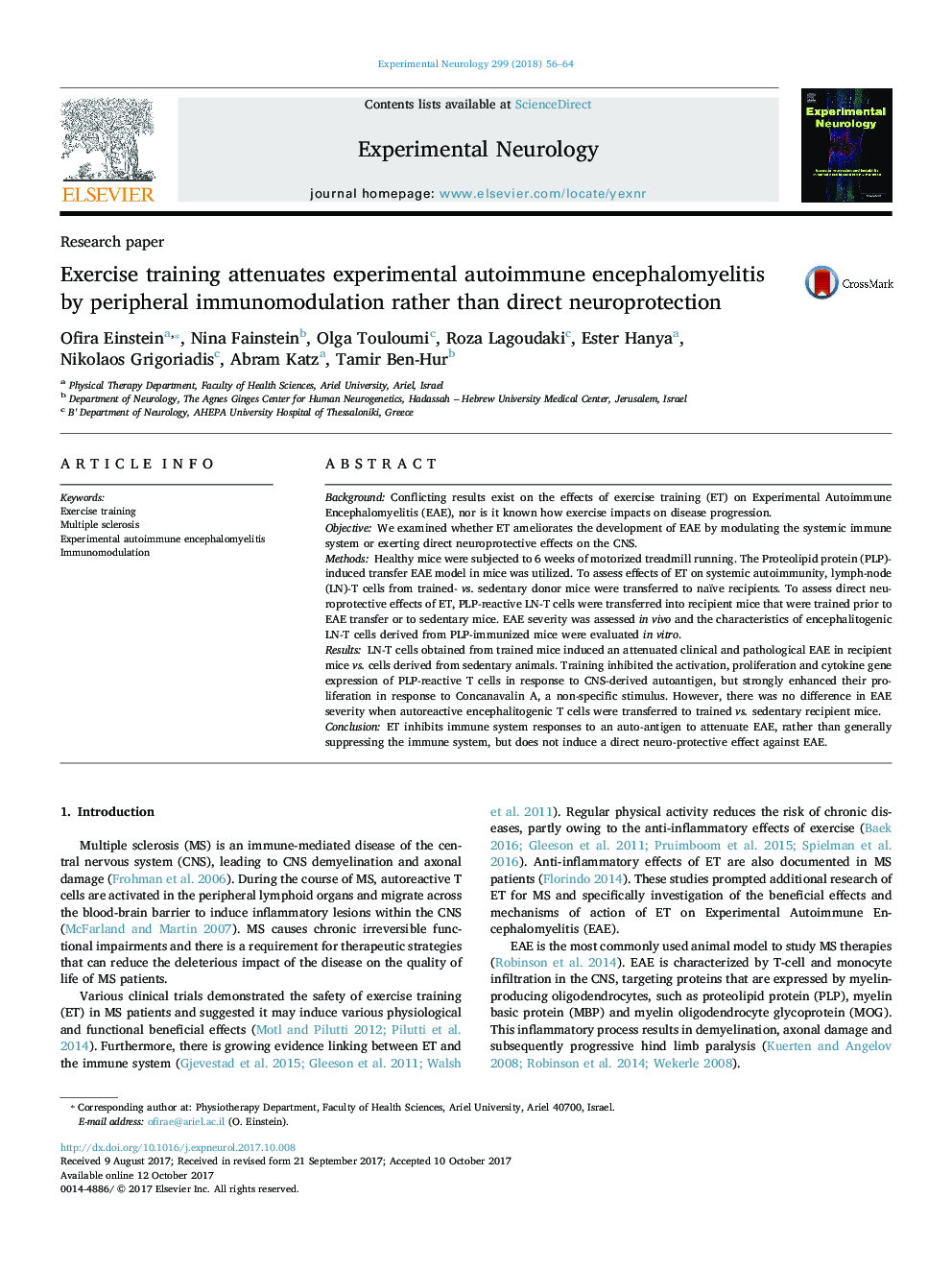| کد مقاله | کد نشریه | سال انتشار | مقاله انگلیسی | نسخه تمام متن |
|---|---|---|---|---|
| 5629168 | 1580140 | 2018 | 9 صفحه PDF | دانلود رایگان |
- Exercise attenuates EAE by modulating the systemic immune system.
- Exercise inhibits immune responses to an auto-antigen.
- Exercise increases immune responses to a non-specific stimulus.
- Exercise does not protect the CNS from encephalitogenic T cells.
BackgroundConflicting results exist on the effects of exercise training (ET) on Experimental Autoimmune Encephalomyelitis (EAE), nor is it known how exercise impacts on disease progression.ObjectiveWe examined whether ET ameliorates the development of EAE by modulating the systemic immune system or exerting direct neuroprotective effects on the CNS.MethodsHealthy mice were subjected to 6Â weeks of motorized treadmill running. The Proteolipid protein (PLP)-induced transfer EAE model in mice was utilized. To assess effects of ET on systemic autoimmunity, lymph-node (LN)-T cells from trained- vs. sedentary donor mice were transferred to naïve recipients. To assess direct neuroprotective effects of ET, PLP-reactive LN-T cells were transferred into recipient mice that were trained prior to EAE transfer or to sedentary mice. EAE severity was assessed in vivo and the characteristics of encephalitogenic LN-T cells derived from PLP-immunized mice were evaluated in vitro.ResultsLN-T cells obtained from trained mice induced an attenuated clinical and pathological EAE in recipient mice vs. cells derived from sedentary animals. Training inhibited the activation, proliferation and cytokine gene expression of PLP-reactive T cells in response to CNS-derived autoantigen, but strongly enhanced their proliferation in response to Concanavalin A, a non-specific stimulus. However, there was no difference in EAE severity when autoreactive encephalitogenic T cells were transferred to trained vs. sedentary recipient mice.ConclusionET inhibits immune system responses to an auto-antigen to attenuate EAE, rather than generally suppressing the immune system, but does not induce a direct neuro-protective effect against EAE.
Journal: Experimental Neurology - Volume 299, Part A, January 2018, Pages 56-64
